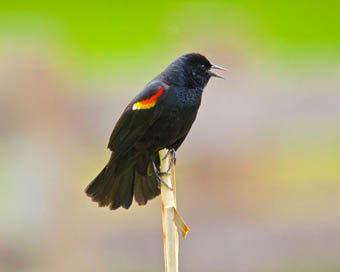Gallery
 PM Modi visit USA
PM Modi visit USA Only the mirror in my washroom and phone gallery see the crazy me : Sara Khan
Only the mirror in my washroom and phone gallery see the crazy me : Sara Khan Karnataka rain fury: Photos of flooded streets, uprooted trees
Karnataka rain fury: Photos of flooded streets, uprooted trees Cannes 2022: Deepika Padukone stuns at the French Riviera in Sabyasachi outfit
Cannes 2022: Deepika Padukone stuns at the French Riviera in Sabyasachi outfit Ranbir Kapoor And Alia Bhatt's Wedding Pics - Sealed With A Kiss
Ranbir Kapoor And Alia Bhatt's Wedding Pics - Sealed With A Kiss Oscars 2022: Every Academy Award Winner
Oscars 2022: Every Academy Award Winner Shane Warne (1969-2022): Australian cricket legend's life in pictures
Shane Warne (1969-2022): Australian cricket legend's life in pictures Photos: What Russia's invasion of Ukraine looks like on the ground
Photos: What Russia's invasion of Ukraine looks like on the ground Lata Mangeshkar (1929-2022): A pictorial tribute to the 'Nightingale of India'
Lata Mangeshkar (1929-2022): A pictorial tribute to the 'Nightingale of India' PM Modi unveils 216-feet tall Statue of Equality in Hyderabad (PHOTOS)
PM Modi unveils 216-feet tall Statue of Equality in Hyderabad (PHOTOS)The Badminton Association of India (BAI) has announced a 14-member-strong India squad for
- Men’s Sr Hockey Nationals to be played in division-based format from April 4
- Mensik denies Djokovic 100th title in Miami final
- KIPG: Son of a vegetable vendor, Bihar’s Jhandu Kumar eyes Worlds, 2028 Paralympics
- Hardik Singh credits hard work and team unity for receiving HI Midfielder of the Year award
- Djokovic, Alcaraz land in same half of Miami draw
Birds can learn to make food choices by watching videos Last Updated : 20 Feb 2020 02:51:29 PM IST 
Bird (file photo) Researchers have found that birds like great tits (Parus major) and blue tits (Cyanistes caeruleus) can learn to avoid toxic food by watching videos of each other.
The study, published in the Journal of Animal Ecology, found that showing bird a video of another bird's response as it ate an unpalatable food item allowed it to learn from a fellow being's experience.The researchers showed that blue tits learned best by watching their own species, while great tits learned just as well from blue tits and their own species."Blue tits and great tits forage together and have a similar diet, but they may differ in their hesitation to try novel food. By watching others, they can learn quickly and safely which prey are best to eat," said study first author Liisa Hamalainen from University of Cambridge in the UK."This can reduce the time and energy they invest in trying different prey, and also help them avoid the ill effects of eating toxic prey," Hamalainen added.In addition to learning directly from trial and error, birds can decrease the likelihood of bad experiences - and potential poisoning - by watching others, the researchers said.Such social transmission of information about novel prey could have significant effects on prey evolution, and help explain why different bird species flock together, they added."In our previous work using great tits as a 'model predator', we found that if one bird sees another being repulsed by a new type of prey, then both birds learn to avoid it in the future. By extending the research we now see that different bird species can learn from each other too," said researcher Rose Thorogood."This increases the potential audience that can learn by watching others, and helps to drive the evolution of the prey species," Thorogood added.For the findings, the researchers showed each bird a video of another bird's response as it ate a disgusting prey item.The TV bird's disgust response to unpalatable food - including vigorous beak wiping and head shaking - provided information for the watching bird.The 'prey' shown on TV consisted of small pieces of almond flakes glued inside a white paper packet. In some of the packets, the almond flakes had been soaked in a bitter-tasting solution.Two black symbols printed on the outside of the packets indicated palatability: tasty 'prey' had a cross symbol that blended into the background, and disgusting 'prey' had a conspicuous square symbol.The TV-watching birds were then presented with the different novel 'prey' that was either tasty or disgusting, to see if they had learned from the birds.Both blue tits and great tits ate fewer of the disgusting 'prey' packets after watching the bird on TV showing a disgust response to those packets, the study said.According to the study, watching others can influence their food preferences and help them learn to avoid unpalatable foods.
IANS London For Latest Updates Please-
Join us on
Follow us on








172.31.16.186







